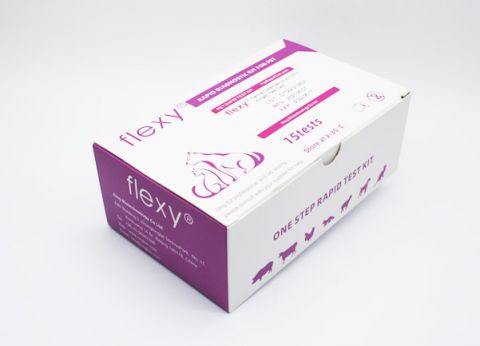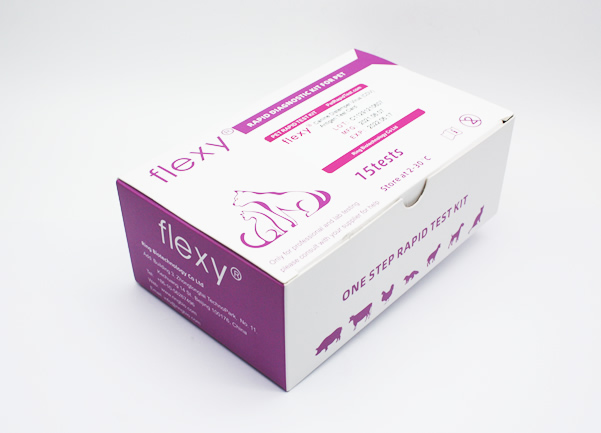
This Canine Parainfluenza Virus CPIV Ag Rapid Test Kit is based on immunochromatographic assay to detect CPIV Ag in canine respiratory tract secretion, which is rapid, accurate and easy-to-operate.
Basic information
Canine parainfluenza virus is a highly contagious viral lung infection and one of the most common contributing causes of Kennel cough (infectious tracheobronchitis), an acute or chronic inflammation of the respiratory airways.
Key facts of the Canine Parainfluenza Virus CPIV Ag Rapid Test Kit
- Ready to use kits for pet owners and vet clinic
- No special instrument required
- Suitable for field test
- Result in 10min.
Canine Parainfluenza Virus CPIV Ag Rapid Test Kit Components
| Item # | Item | Qty |
|---|---|---|
| 1 | Rapid Test Card | 15 pcs |
| 2 | Sample buffer tube | 15 bottles |
| 3 | Plastic pipettes, 0.5ml | 15 pcs |
| 4 | Kit instruction, | 1 set |
What are the symptoms of canine parainfluenza?
Symptoms of CPIV resemble canine influenza but it is a very different virus requiring different treatments and vaccinations. The symptoms of canine parainfluenza can vary depending on the dog’s age and any weakened immunity due to age or an existing illness. Some or all the following signs may be exhibited: –
- Persistent cough
- Fever
- Nasal discharge
- Sneezing
- Eye inflammation
- Lethargy
- Loss of appetite
What are the causes of canine parainfluenza?
CPIV is transmitted by means of airborne particles from coughing and sneezing and through contact with contaminated food bowls, water bowls and bedding. An infected dog can continue to pass on the virus for up to 2 weeks after recovery.
What are the risk factors of canine parainfluenza?
Dogs are at risk of catching canine parainfluenza when placed in close proximity to an infected dog. Potential situations would be at boarding kennels, breeding kennels, rehoming shelters, pet daycare centres, dog parks and groomers.
When coupled with Bordetella bronchiseptica or canine adenovirus-2 (CAV-2), parainfluenza can contribute to your dog developing kennel cough
Diagnosis
If your dog is showing signs of infection from CPIV, it is important to get him checked out by a vet as soon as possible. Your vet will give your pet a thorough examination and request a detailed history of his health, symptoms and when symptoms first appeared. You will also need to give details of any close contact he has had with other dogs over the previous month. A blood sample and/or a secretion sample from the eye or nose will be taken to test for the virus and rule out any other illnesses. If there are concerns that your pet has developed pneumonia, your vet may wish to take a chest x-ray. Speedy diagnosis is essential for your dog to receive effective treatment and quarantine to prevent this highly contagious virus spreading to other dogs.
What treatment can be given for canine parainfluenza?
Some dogs may recover from the virus without medication but generally, antibiotics will be given to treat any bacterial infection and antiviral medication to suppress the virus. If your dog is suffering with a very dry and painful cough, cough suppressants and painkillers are likely to be given, as persistent coughing over a long period of time can cause scarring of the lung tissue and long-term problems.
Your dog’s recovery will very much depend on his health prior to infection and, prompt diagnosis and treatment. Keeping your pet isolated will not only prevent spreading the virus but also protect him from any secondary infections and complications.
The virus should run its course within 2 weeks.
How to prevent canine parainfluenza
Effective vaccination is available but is not always given as part of a standard inoculation program. Ask your vet about vaccination if you are concerned and especially if your dog is regularly in contact with other dogs.
Extended reading
- Home Health UK, Canine Parainfluenza Virus(CPIV)




